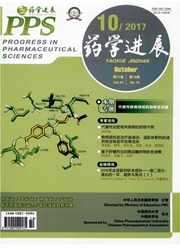

 中文摘要:
中文摘要:
代谢组学是运用多种技术手段,研究生物体系中小分子代谢物的种类、数量及变化规律的科学,是系统生物学的重要组成部分,根据研究目的的不同分为非靶向和靶向代谢组学。非靶向代谢组学是对生物体内源性代谢物进行系统全面的分析;靶向代谢组学则是针对特定的某一类代谢物进行分析。随着信息科学和分析技术的发展,运用代谢组学研究疾病机制和发现药物靶点的方法日趋成熟,其重要性也日益凸显。通过典型实例,介绍非靶向和靶向代谢组学及二者结合在肿瘤、代谢性疾病等药物靶点发现中的作用,为深入理解代谢组学在疾病机制研究和药物靶点发现中的重要作用提供参考和启示。
 英文摘要:
英文摘要:
As an emerging omics science in system biology, metabolomics studies the species, quantity and dynamic changes of small molecular metabolites in a biological system by making use of various technologies. Based on research purpose, metabolomics is divided into untargeted and targeted metabolomics, the former aims to comprehensively analyze the broadest range of endogenous metabolites while the latter focuses on a predefined set of metabolites, With innovative advancements in informatics and analytical technologies, metabolomic analyses are widely used in biomedical sciences to reveal disease mechanisms and explore drug targets. In this review, the latest applications of untargeted and targeted metabolomics in discovering novel drug targets for cancers and metabolic diseases were int-coduced, so as to provide reference and ideas for the further understanding of important roles ofmetabolomics in mechanistic study and drug target exploration.
 同期刊论文项目
同期刊论文项目
 同项目期刊论文
同项目期刊论文
 期刊信息
期刊信息
